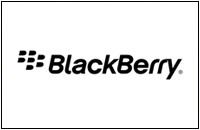
Credit: NetworkWorld.com
Enterprises are starting to use the BlackBerry in a new way: as a means of taking their desk phones mobile.
Research In Motion, known mainly as a mobile e-mail vendor, is making a surprising effort to leverage the voice side of the BlackBerry smartphone, positioning its server software as a way to blend cellular and corporate voice networks by linking the BlackBerry Enterprise Server (BES) with the corporate PBX.
The result is a set of capabilities, achieved without major infrastructure changes, that many enterprises probably will find compelling. They include a single corporate telephone number that rings on a cell phone, an office phone, a business phone at home, or on a BlackBerry, extending PBX features to the BlackBerry. (Compare unified communications products.)
Fayetteville State University (FSU) in North Carolina experienced the power of RIM's Mobile Voice System (MVS) when a key storage-area network suffered a catastrophic failure, says Joseph Vittorelli, the university's director of systems and infrastructure. Within minutes, he connected to every staff member he needed -- regardless of where they were -- via the conference feature, made assignments and got the team working together on very short notice.
FSU, Dell and Chicago-based produce-wholesaler Anthony Morano Co. were panelists at this week's annual BlackBerry user conference, discussing fixed-mobile convergence (FMC) and MVS.
Another change at FSU is that voice mails -- a product of people's inability to connect -- have dropped to zero in many cases. Vittorelli recently got a call from a user who returned from lunch, found she had three voice mails and demanded to know why the calls had not reached her BlackBerry smartphone.
"Enterprises are realizing as they look at fixed-mobile convergence and unified communications that mobility is a big part of this," says David Heit, director of software product management, who focuses on MVS, server software introduced in 2007 and based on a product acquired when RIM bought Ascendent Systems.
MVS links the BES to a large number of PBX brands, forging voice- and call-control links between the BlackBerry cellular world, corporate telecom systems, and an array of carrier-base landline and wireless networks. Users get a new corporate phone number that overlays their cell-phone number. All inbound calls are made to that one number, ring on all of the user's phones, and connect on whichever phone the user answers. "I now have the concepts of call routing and call control [with the BlackBerry devices]," Heit says.
Heit demonstrates on his own BlackBerry, selecting a five-digit corporate extension at a desk in RIM's Waterloo, Ontario, headquarters and pressing a button to connect over AT&T's Enhanced Data Rates for GSM Evolution network. For the first time, the BlackBerry becomes in effect the user's mobile desk phone, not just his mobile e-mail device.
It's all done without wading into what Heit calls the "thick soup" of the complexities of VoIP infrastructure deployments, of FMC architectures, and the like. "The trend to all-IP converged infrastructures will take years," he says.
You can see the whole article here.





No comments:
Post a Comment